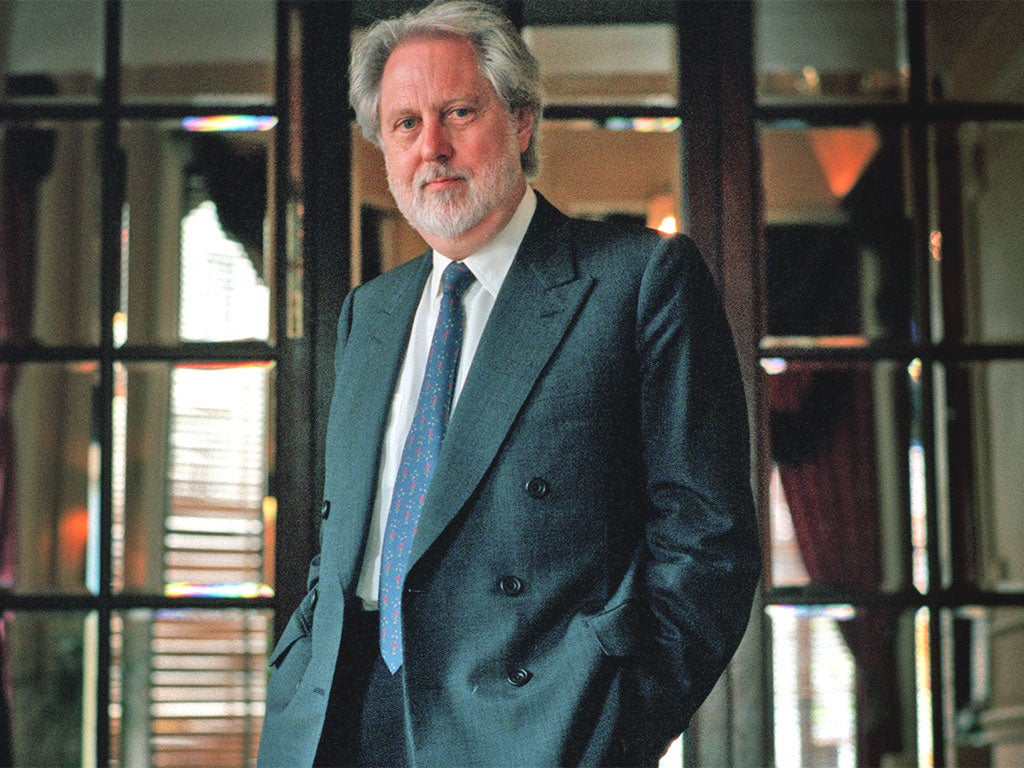David Puttnam: Headteachers shun art in their schools due to worry about exam table rankings
'Arts provision in schools really relies on the ambition of individual headteachers'

Too many “bad” heads are shunning the arts in their schools because they are worried about their exam league table rankings, according to Oscar-winning film producer David Puttnam.
Lord Puttnam, a former education adviser to the Blair government, wants education standards watchdog Ofsted to place more weight on arts provision during school inspections.
“I know it doesn’t at the moment,” he said in an interview with The Independent. “ It might just be a footnote to a report: the arts provision is excellent.
“Really, a school ought to be awarded outstanding status if it has excellent performance in the arts and is just achieving decent results in other areas.”
Lord Puttnam added: “For good or ill, arts provision in schools really relies on the ambition of individual headteachers.
“Where you’ve got an excellent head who gets it provision can be excellent but where you’ve got a head only riveted by their place in the rankings then the arts tend to get marginalised.
“Good heads look at the evidence of the character and nature of the school and recognise the extraordinary role the arts can play in lifting a school. Bad heads don’t seem to take the broader vision.”
Asked how many heads fell into the latter category, Lord Puttnam, who is a founder of Artis - set up to improve standards in schools through the performing arts, replied: “Too many.
“I think that unfortunately the atmosphere in pursuit of his policies that Michael Gove (the former Education Secretary) managed to create was largely responsible for the lack of ambition on the part of bad heads.”
They felt they had to concentrate on delivering results in the core subjects at the expense of other areas of the curriculum, he argued.
He said he had had few dealings with his successor, Nicky Morgan, but argued: “Her brief was a simple one - cease alienating the teachers in the run-up to the election and see how many we can claw back to supporting us before it takes place.”
Citing a poll by the TES which showed 30 per cent of teachers were planning to vote Conservative, he added it could have been “an acute strategy - probably a good piece of casting”.
He said it was ironic that - whenever there was a ministerial visit to a school - it would “strut its stuff in terms of its arts provision” with “a snatch of a school play” or “some kid playing the violin”. However, after the minister left, the subject was “marginalised”.
Too often today the arts were having to compete with sport, he added. “We’re moving dangerously towards a point where sport and the arts are competing for funding and time,” he said. “That’s lethal - the idea there is an either or is madness. Sport and the arts should get together and shout loudly together for resources rather than compete.”
Lord Puttnam acknowledged that there was a need for more engineers in the UK but argued that some of the engineers who were most happy in their jobs were in employment linked to the arts - on the production side.
He added: “I think there are any number of kids with enormous potential who don’t ever get a chance to realise it because they’re not given the opportunity.”
He criticised the lack of focus on education during the election campaign in comparison with the 1997 election campaign when Tony Blair famously gave his three priorities as “Education, education and education” and John Major said his were the same “but not necessarily in that order”
“We seem to have got to the point where we tolerate a situation where education is all right and everything else is great,” he said. Yet a successful education system would lift people out of poverty and reliance on the health service, he argued.
Lord Puttnam was responsible for establishing the annual Teaching Awards - dubbed the profession’s “Oscars”. His many films included Chariots of Fire, which won an Academy Award for the best film.
Subscribe to Independent Premium to bookmark this article
Want to bookmark your favourite articles and stories to read or reference later? Start your Independent Premium subscription today.

Join our commenting forum
Join thought-provoking conversations, follow other Independent readers and see their replies